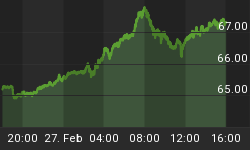 This coming Monday, according to reliable sources, Canada will experience something unprecedented in its history -- a coalition government forming to unceremoniously turf a recently (and expensively) elected minority government out on its ear.
This coming Monday, according to reliable sources, Canada will experience something unprecedented in its history -- a coalition government forming to unceremoniously turf a recently (and expensively) elected minority government out on its ear.
The source is the coalition force themselves, and, even in this cynical age of ours, that's pretty dependable information.
Will it happen? Will anyone care?
Canadian markets seemed very unhappy about this when the word came down late last week. Not so much because the Conservatives under Stephen Harper were doing such a bang-up job, but because it is easier to love the devil you know than the devil you don't. Stockholm Syndrome, and all that...
As always, some perspective is needed...
Canada was formed, loosely, by two groups. One was a bunch of peaceniks from Britain seeking religious freedom, The other a bunch of brave souls from France who, more often than not, chose the New World, and a fresh start, because of unresolved legal issues in the old world.
Over the fullness of time, these two groups ultimately did the one thing that our society seems to do best, they started a war. Which resolved itself, as wars usually do. However, it speaks to the very highest attributes of "Canadian-ism" that, centuries later, not only do our history books tend to gloss over this event as merely a minor disagreement, but, especially in Quebec annals, that disagreement would appear to have ended in a draw.
Which brings us back to the current events right now in motion.
By no mere coincidence, one of the minority parties hotly seeking to "coalesce" is a federal party founded on the quaint notion that Canada should be returned to the very conditions it enjoyed just prior to that aforementioned historical disagreement. In other words, a so-called separatist party, funded by tax dollars from hard-working, but essentially easy-going and incredibly forgiving, Canadians everywhere. Canadians who, typically, find it easier to endlessly discuss the mere possibility of disagreement than to actually disagree about anything.
There is a good reason Canadians don't carry guns. Because to use one, they would first have to become passionate about something, and that is not what Canada is really about -- or, in this case, "a-boot." There are, in fact, university-level studies clearly showing Canadians to be not only peace-loving to a fault, but also apathetic to the point of necrosis. FAST FACT -- among all democratic western nations, more Canadians will go from birth to death without ever actually joining a political party than in any other land.
So, as they like to say in the espionage biz, let's "walk the cat backwards" to try to imagine the look on the face of the one specific federal party mandated to seek the destruction of their nation when, last week, Prime Minister Stephen Harper suggested that he was going to change the laws respecting campaign funding -- placing a greater burden on marginal parties to actually connect with their alleged constituents for future dollars.
Now, an argument can perhaps be made that one should not always take Mr. Harper at his word on such pronouncements since, some time ago, he actually passed a law saying that a federal election could not, and would not, be held in 2008 -- a law still on the books! -- but he himself called one, and held one, anyway.
But the damage is done. And so, for the first time in the history of a country that never bothered anyone; never borrowed a lawnmower from a neighbour and then failed to return it; never sent south a comedian that failed to make it big and then move to Beverly Hills; we suddenly have "common interests" among three parties that usually don't even talk to each other. An odd coalition indeed -- one of these parties was recently ousted due to corruption; one of them believes so strongly in the redistribution of wealth that, to them, Robin Hood was a Republican; and, as just explained, one of them considers the entire Canadian union merely a temporary aberration.
The current press reports that "Canadians are outraged" by this turn of events.
Which, loosely translated, means that at least six people in the country are really upset -- perhaps they should form a party and apply for federal funding?















